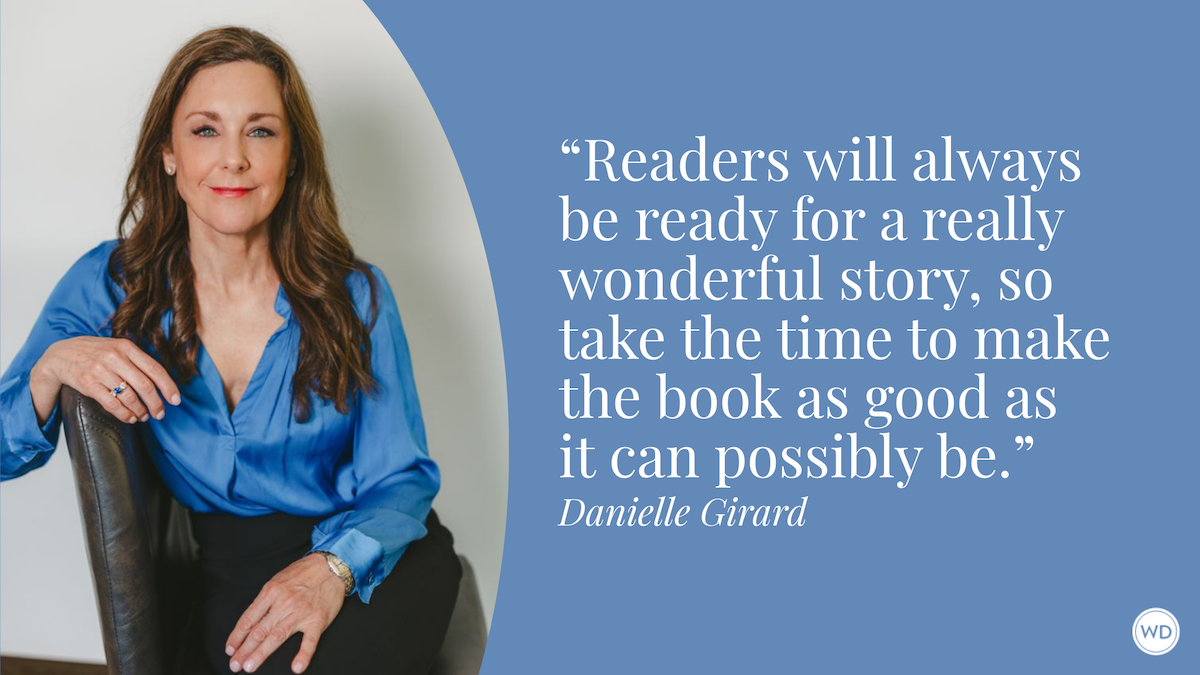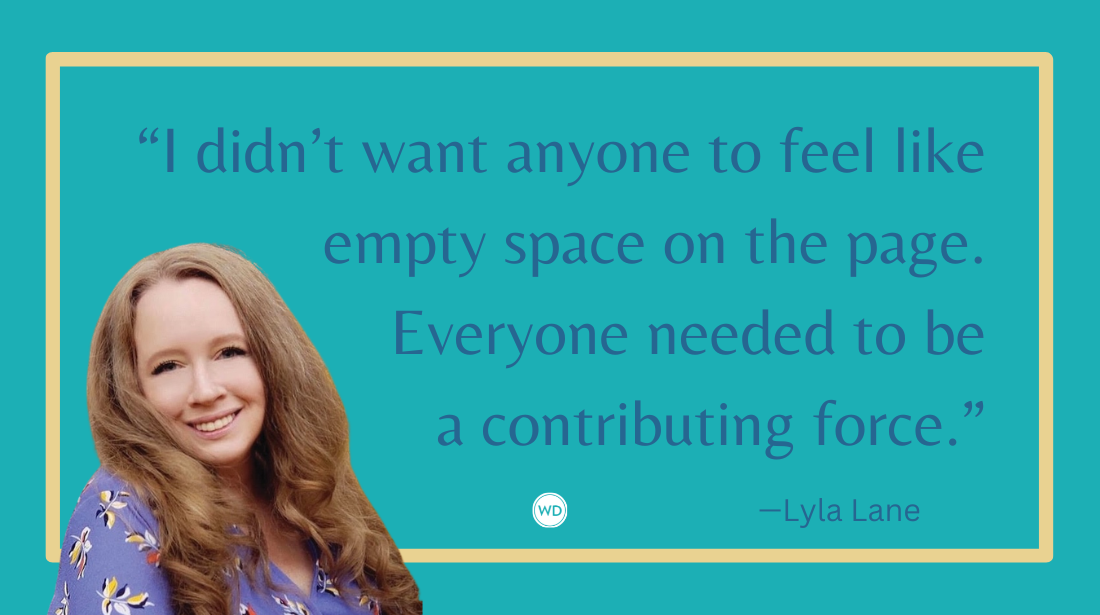21 Ray Bradbury Quotes: Your Moment of Friday Writing Zen
From the Writer’s Digest archives, here’s an array of quotes from the brilliant mind of Ray Bradbury, author of Farenheit 451 and Zen in the Art of Writing.
Every week, I spelunk into the Writer’s Digest archives to find the wisest, funniest, or downright strangest moments from our 92 years of publication.
Today: An array of quotes from the brilliant mind of Ray Bradbury, author of Farenheit 451, Zen in the Art of Writing, and many other books.
(Also, once again, we’ve dipped a hand randomly into the WD swag hat, and a name has emerged—Cheryl Baker. Cheryl, shoot me an email at writersdigest [at] fwmedia [dot] com, and I’ll send you a list of the free books to choose a title from. For everyone else out there, to get in on the action and make yourself eligible to win a free book from our swag stacks, all you have to do is leave a comment on this post by the end of next week.)
Happy Friday! Here's your moment of writing zen.
--
From “Ray Bradbury’s Nostalgia for the Future” by Timothy Perrin, WD, February 1986:
“All of the good, weird stories I’ve written are based on things I’ve dredged out of my subconscious. That’s the real stuff. Everything else is fake.”
“I don’t need an alarm clock. My ideas wake me.”
“The trouble with a lot of people who try to write is they intellectualize about it. That comes after. The intellect is given to us by God to test things once they’re done, not to worry about things ahead of time.”
“Don’t worry about things. Don’t push. Just do your work and you’ll survive. The important thing is to have a ball, to be joyful, to be loving and to be explosive. Out of that comes everything and you grow.”
“Just write every day of your life. Read intensely. Then see what happens. Most of my friends who are put on that diet have very pleasant careers.”
From “The Zen Writer …” by Ray Bradbury, WD, December 1974:
“What is the greatest reward a writer can have? Isn’t it that way when someone rushes up to you, his face bursting with honesty, his eyes afire with admiration and cries, ‘That new story of yours was fine, really wonderful!’ Then and only then is writing worthwhile. …
The most callous of commercial writers loves that moment. The most artificial of literary writers lives for that moment.”
“You will have to write and put away or burn a lot of material before you are comfortable in this medium. You might as well start now and get the necessary work done. For I believe that eventually quantity will make for quality. How so? Quantity gives experience. From experience alone can quality come. All arts, big and small, are the elimination of waste motion in favor of the concise declaration. The artist learns what to leave out. His greatest art will often be what he does not say, what he leaves out, his ability to state simply with clear emotion, the way he wants to go. The artist must work so hard, so long, that a brain develops and lives, all of itself, in his fingers.”
“Let the world burn through you. Throw the prism light, white hot, on paper.”
“Remember: Plot is no more than footprints left in the snow after your characters have run by on their way to incredible destinations. Plot is observed after the fact rather than before. It cannot precede action. It is the chart that remains when an action is through. That is all Plot ever should be. It is human desire let run, running, and reaching a goal. It cannot be mechanical. It can only be dynamic.”
From The Writer's Digest Interview by Robert Jacobs, WD, February 1976:
“I’ve often been accused of being too emotional and sentimental, but I believe in honest sentiment, and the need to purge ourselves at certain times, which is ancient. Men would live at least five or six more years and not have ulcers if they could cry better.”
“The only good writing is intuitive writing. It would be a big bore if you knew where it was going. It has to be exciting, instantaneous and it has to be a surprise. Then it all comes blurting out and it’s beautiful. I’ve had a sign by my typewriter for 25 years now which reads, ‘DON’T THINK!’"
“I just act and react and emotionalize and all good stuff comes out. Nobody’s ever thought their way to anything in literature.”
“You have to live in a cloud of emotions. You rev yourself up. Give yourself time in the middle of the afternoon, or when you’re waking up early in the morning, when you’re in that kind of wonderful, euphoric state in-between, on the verge of dreams when you get a kind of nuclear bombardment of all kinds of fragments of ideas jumping around inside your head and hitting each other. They begin to fuse and detonate each other. It’s a very hard thing to describe. You don’t have any control over your mind at a time like that, and you don’t want it, see? Let it run wild! Then watch it remotely at the bottom of your skull. Look up at all those things running around wild, then jump up and run over to the typewriter and feed them in!”
“I absolutely demand of you and everyone I know that they be widely read in every damn field there is; in every religion and every art form and don’t tell me you haven’t got time! There’s plenty of time. You need all of these cross-references. You never know when your head is going to use this fuel, this food for its purposes.”
“Locked into everything is a mystery. We then try to find, in any given age as writers, the truths that we grew up with. You cannot grow up in a period and not be a child of your time.”
“I don’t believe in being serious about anything. I think life is too serious to be taken seriously.”
“I’ve tried for 20 years at least to say I’m not afraid of machines, I’m not afraid of the computer, I don’t think the robots are taking over. I think the men who play with toys have taken over.”
“Young writers shouldn’t kid themselves about learning to write. The best way to do that is to train yourself in the short story. Read every damn one that’s ever been written, and there aren’t that many really good ones. You must live feverishly inside a library. Colleges are not going to do you any good unless you are born, raised and live in a library every day of your life.”
“I always say to students, give me four pages a day, every day. That’s three or four hundred thousand words a year. Most of that will be bilge, but the rest …? It will save your life!”
“Don’t talk about it; write.”
-----
Want to go Deeper into Bradbury's writing? Check out Write Like the Mastersby William Cane. And for more Bradbury quotes, and wisdoms from 89 other legendary scribes, read our 90-year retrospective here.
Zachary Petit is a freelance journalist and editor, and a lifelong literary and design nerd. He's also a former senior managing editor of Writer’s Digest magazine. Follow him on Twitter @ZacharyPetit.







